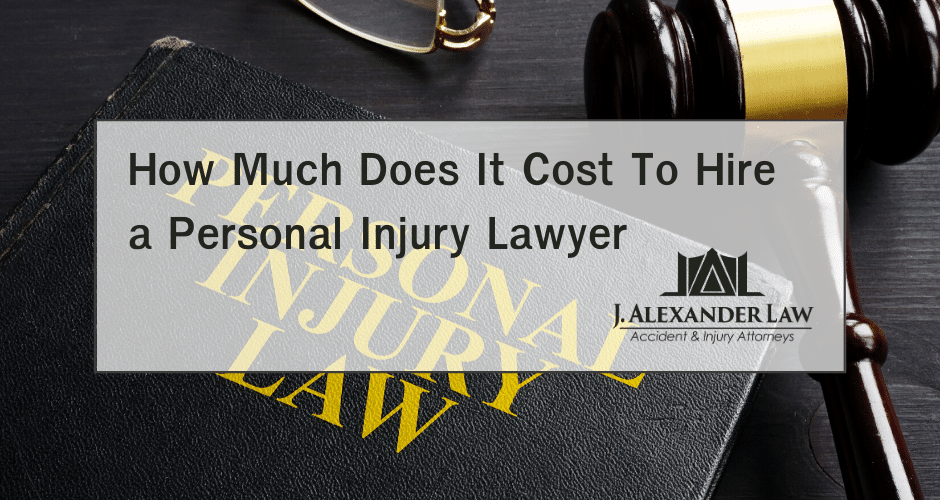When you’re injured because of someone else’s negligence, you could be entitled to file a lawsuit and recover damages. Many people choose to work with a personal injury attorney rather than go up against big-name insurance companies alone – and that’s generally a smart choice, because having an experienced professional in your corner can be a tremendous help.
But how much do lawyers charge for personal injury cases?
Here’s what you need to know.
How Much Do Attorneys Charge for Personal Injury Cases?
Personal injury cases are different from other types of legal cases. For example, when you hire a criminal defense attorney, you’ll have to pay him or her a “retainer” fee for researching your case, showing up in court and arguing on your behalf. The retainer fee is only good for a certain number of hours, and once your attorney spends more than that specific amount of time on your case, he or she will bill you per hour.
In personal injury cases, however, lawyers usually work on contingency fees. That means if you don’t win your case, the lawyer doesn’t charge you a dime – and when you do win your case, the attorney’s fees will be deducted from your final settlement. You don’t have to pay out-of-pocket; your lawyer takes his or her fee from the damages you win in your case.
Related: 7 times you may need a work injury lawyer
What Are Standard Contingency Fees for Personal Injury Cases? 
Most lawyers earn between 33 and 40 percent of your final settlement. That means if you win $30,000, your lawyer will earn somewhere between $10,000 and $12,000. In some cases, the contingency fee is negotiable.
Sometimes attorneys create a fee agreement that says the percentage the lawyer earns is based on when your case is resolved. This type of agreement is typically called a “sliding scale.” If your case resolves quickly – meaning you reached a fair settlement early on in the process without having to go to court – the attorney’s fee percentage might be on the lower end of the scale. However, if you only reach a settlement after an extensive lawsuit in court, your attorney might charge you a percentage higher on the scale because he or she did more work to help you win the case.
Related: What are compensatory damages in a personal injury suit?
What About Incidental Expenses?
Personal injury cases often result in incidental expenses. Usually, attorneys cover these expenses themselves when they arise; when you win your case, your attorney will deduct these expenses from your settlement or award. Some of the most common costs that come up in personal injury cases can include:
- Records fees
- Expert witness fees
- Investigator fees
- Postage and filing fees
- Depositions
- Transcripts
- Trial exhibits
How Do Lawyers Know They’ll Get Paid for Personal Injury Cases?
Personal injury attorneys don’t take cases they don’t believe they can win. If they did, it would be a disservice to you – you’d have to pay for an attorney to fight a losing battle. Typically, settlement checks are sent directly to attorneys, who then deduct their fees and forward the remaining settlement to the recipient (along with an itemized list of deductions).
If you choose to represent yourself after your case is already underway, or if you change attorneys, your original attorney may be able to put a lien for fees and expenses on your eventual settlement award.
Do You Need to Talk About Your Personal Injury Case?
We may be able to help you if you’ve been injured in a slip and fall, truck accident or any other type of accident. Call us today for a free consultation – we can give you the legal advice you need right now.



